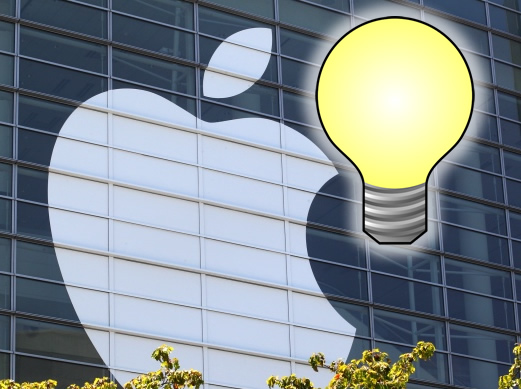Just how much innovating do you want Apple to do?


My ZDNet colleague Jason O'Grady last week penned a piece where he took Apple to task for a lack of innovation.
The examples Jason cites in terms of both Apple and its competitors in the piece are accurate enough, but if we follow the product life cycle it's not that unusual.
As Apple's key products -- iPhone and iPad -- enter the "maturity" stage of their cycle, competitors are supposed to catch up, copy, and leapfrog the incumbent leader.
Where this issue of innovation gets interesting is that if we ignore the "pure consumer" side of Apple's story and talk about innovation just in terms of enterprise IT, things get more heated and more interesting.
Commerce
We've had decades where Apple's products have been ignored or dismissed by the enterprise. But that's to be expected. PCs have always been about driving commercial efficiency within business, and Microsoft and the entire ecosystem has always been about that particular gravy train.
As a result we have products which are so superbly executed within enterprise environments it has no meaningful and realistic competition. If you have to manage 10,000 desktops in your organisation, Windows is the basis on which to build. Try and do that with OS X and you'll likely end up fired, insane, or both.
Analyst Benedict Evans presents an estimate that there are 800 million corporate PCs in use around the world. (For completeness, he estimates an additional 900 million consumer/personal PCs.) Apple's intention has never been to go for that corporate market in any meaningful way.
Macs are not about "driving commercial efficiency" in the way that PCs are. They are about making computing functionality easy and accessible. In the PC era Apple built Macs, both approaches orbiting around each other in different ways with Apple never going after the enterprise market.
As we went into the post-PC era, "driving commercial efficiency" still was not on Apple's radar. What they wanted to do was change the very nature of how computing was done, how computing was consumed. It was the next stage of what they'd spent the previous decades doing.
What Apple did with the iPhone and iPad was disrupt IT to the extent that you look at what Apple and non-Apply post-PC devices are about and you wonder if they are about IT in its rawest sense of "information technology" at all. It's hard to describe a barista on a coffee break hacking away at Facebook in their lunch hour as "IT", but yet every part of that chain is -- technically at least -- "information technology".
It's that model, the "barista on a break" model, that is what our computer industry is all about. And Apple did that, not anyone else.
Disruption
Personally, I find accusing Apple of not "innovating in enterprise IT" is ridiculous.
Saying they don't or haven't is like going up to someone who in the space of a month climbed Everest, K2, and the next dozen or so highest mountains and saying "Hey, why haven't you climbed any more mountains?"
The only good response to which is this: "You know, I feel like I've climbed enough mountains."
Here's a tweet from the Guardian's technology editor, Charles Arthur:
Microsoft tried to innovate with Longhorn, and ended up with Vista. No one during that period would have accused them of not innovating. Because Microsoft has weirdly never really had proper competition, everyone just nodded along during this whole process. Had Windows had had proper competition during that period, it would not have survived.
Likewise with Windows 8, no one could accuse Microsoft of not innovating. They've beaten the stuffing out of Windows with their innovation stick.
And yet during that three year period, a relatively niche, almost "boutique" computer company comes up with a product that is so innovative, so new, is disrupts our industry to the point where I'm not even sure whether we can call what we do "IT" anymore.
If you do happen to be a CTO in charge of 10,000 desktops, plus all the servers and plumbing to make it sing, on one level nothing's going to change. Windows is the only thing that lets you sleep at night.
But alongside those 10,000 desktops you've got pressure. You've got employees wanting their work email on their smartphones. Business unit managers having great ideas of how tablets can be used to drive profits, make customers happy, yadda yadda.
In all that, the new opportunities that you're looking at there all came from Apple innovating more deftly and more completely than Microsoft, or anyone else in the entire IT industry. There has not been anything this disruptive to the status quo since the introduction of the PC itself.
And people can say "they're not innovating!"?
And if you're asking "come on Apple, what next?" -- ask yourself whether you really want that much disruption happening every year.
Personally, I'm happy to wait and have a little break and wait until circa 2020 for the next big thing to hit.
What do you think? Post a comment, or talk to me on Twitter: @mbrit.